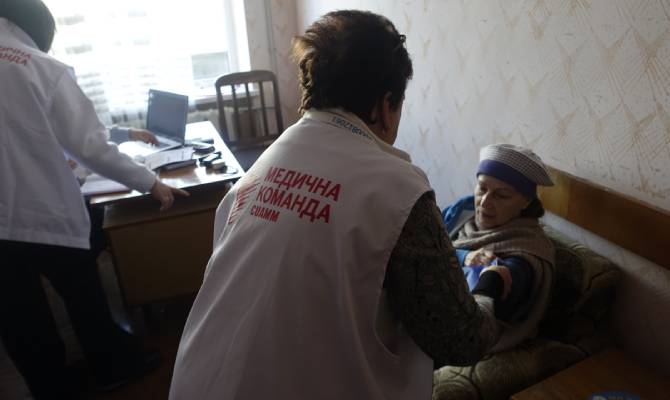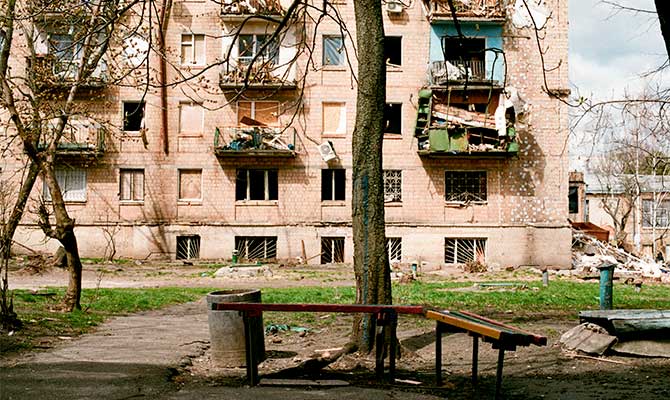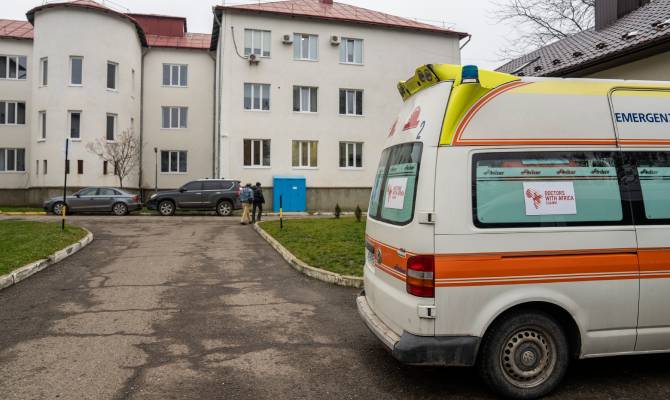Russia’s full-scale invasion of Ukraine, which began on 24 February 2022, has been characterized by a flagrant disregard for civilian life and frequent war crimes. Ukraine, where people over 60 years old make up nearly one-fourth of the population, is one of the “oldest” countries in the world.
Often reluctant or unable to flee their homes, older people face a greater likelihood of being killed or injured. Even when they succeed in escaping such dangers, older people face distinct challenges in displacement. In particular, they struggle in accessing adequate housing and end up in isolated settings where the exclusion from their community jeopardize their psychological well-being.
Natalia L.*, 68, had lived in Kherson region, Southern Ukraine for years. In March 2022, when the Russian invasion of Ukraine begun, her life changed profoundly. Her town was occupied, and Natalia had no choice but flee with her little belongings. That is when she became one of 3.7 million internally displaced people as of August 2024.
Once displaced by the conflict, older people like Natalia are often locked out of the rental market by pensions that are well below real subsistence levels.
With her little savings, she was unable to find a house and could only stay in overcrowded accommodation centres as she journeyed across regions from Mykolaiv to Dnipro.
In particular, as an elderly internally displaced person, this living condition had severe consequences on her health and emotional well-being. Her fragile sense of security worsened when her son was called to join the army, leaving her alone with fear and anxiety.
Eventually, Natalia arrived in Strij (Lviv Region), and started living in one of the Accommodation Centres. When she joined the Centre, the staff soon noticed that she was suffering from slowness of speech and movements, uncontrollable tearfulness. In addition, she was not speaking to anyone in the Centre and started spending days in isolation.
«I am useless; no one cares about me»
These are the words she pronounced the most during the meetings with the staff of the Centre. In order to assess Natalia’s health status, she was referred to the Health Mobile Unit service provided by CUAMM, in partnership with Caritas SDD’s Mobile Unit. This activity is a part of the RISE project: Integrated Response to Support the Emergency in Ukraine. Our project is part of a 46.5 million Euro initiative funded by the Italian Agency for Development Cooperation, reaching 900,000+ people affected by the Ukraine crisis.
The Mobile Unit team, composed of a nurse, a doctor, and a psychologist, provides vulnerable people, including IDPs living in Accommodation Centres in remote areas in the Lviv region with health and psychological support.

High pressure and headache were then treated with free medications that Natalia received from the Health Mobile Unit, along with a psychological therapy. After assessing her level of anxiety and depression, the psychologist supported her with some coping strategies. Specific tests, such as the Patient Health Questionnaire (PHQ) and the Brief-COPE questionnaire, revealed a mild degree of depression and the use of avoidant coping mechanisms. Over time, the tailored support provided to Natalia showed good results. She started communicating with her neighbours in the Centre and participating in volunteer activities.
«I feel more active now, and I want to help other people who are experiencing the same problems» stated Natalia before expressing gratitude to the psychologist: «I cannot thank you enough for your continuous support and how you care about me. Now I feel better, and my life makes sense again».
Thanks to the support of the Italian Agency for Development Cooperation, CUAMM can implement a multi-disciplinary approach, combining health and psychological support for vulnerable people, ensuring that people’s immediate and lifesaving needs are met, alleviating the sufferings caused by the war.
CUAMM response
Doctors with Africa CUAMM has been working in Ukraine since March 2022, providing multisectoral responses to the urgent needs of the most vulnerable populations affected by the Ukrainian conflict. Since the onset of the humanitarian crisis in Ukraine, CUAMM has adopted a flexible, multisectoral approach to address the multidimensional needs of war victims. In close collaboration with local authorities and civil society organizations, CUAMM has developed an intervention strategy aimed at supporting and integrating the socio-healthcare system in conflict-affected countries, ensuring access to essential and life-saving services for the most vulnerable groups.
Active from the outset of the humanitarian crisis in the Ternopil and Chernivtsi regions in western Ukraine, CUAMM has reached over 40,594 people and supported more than 29 healthcare facilities with medicines, consumables, biomedical equipment, and logistical support materials ensuring the continuity of life-saving services and contributing to reducing morbidity and mortality among war victims in the areas targeted.





